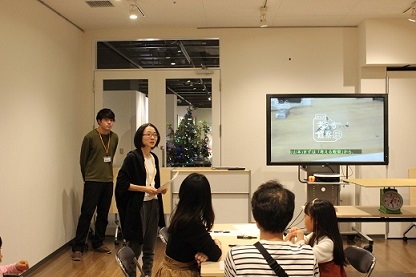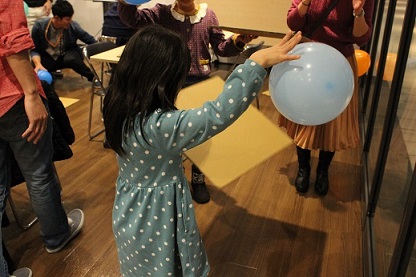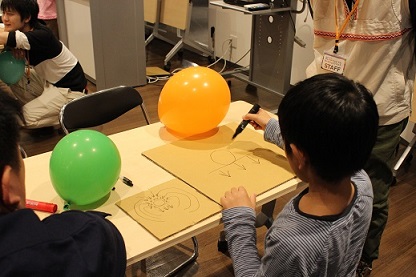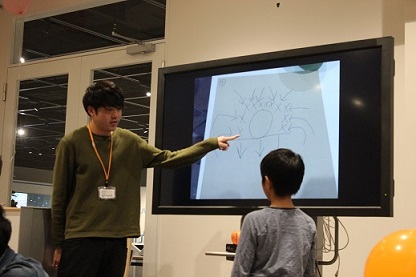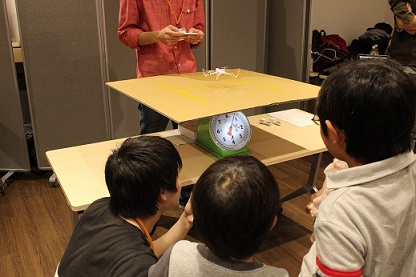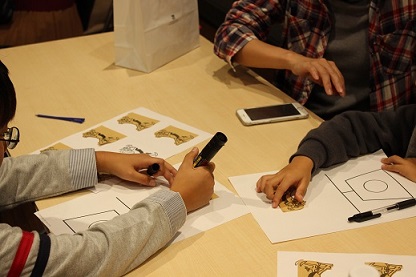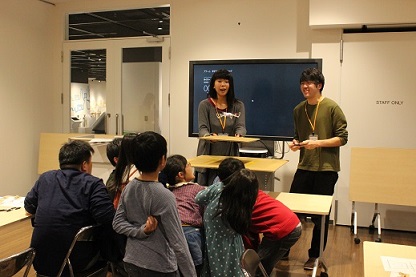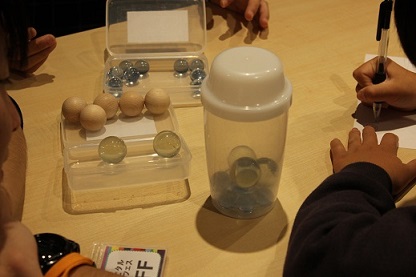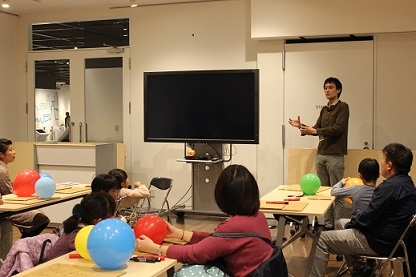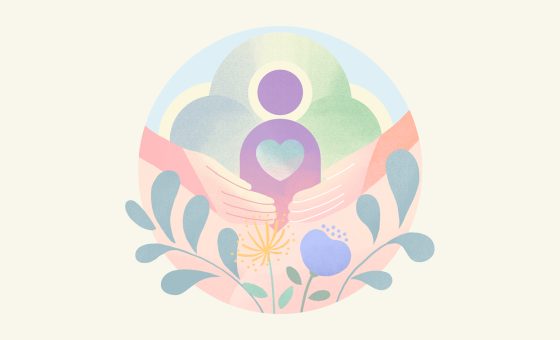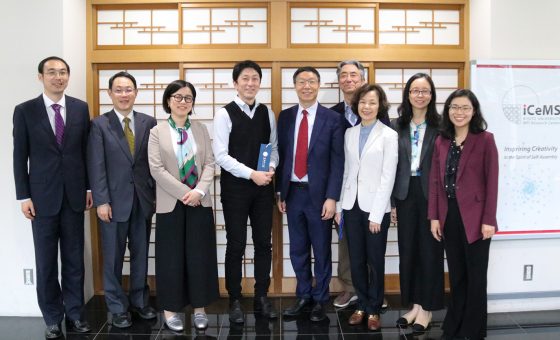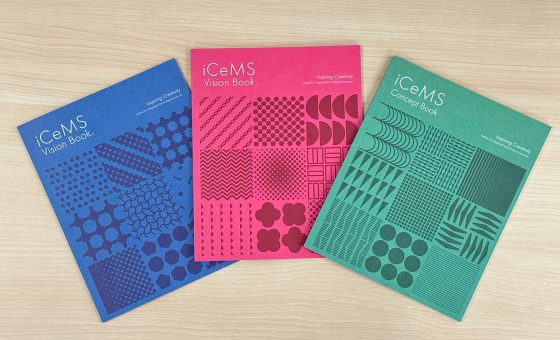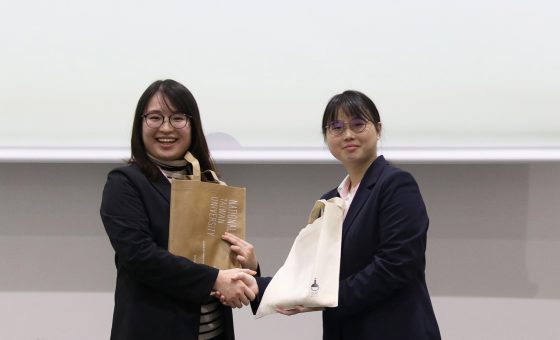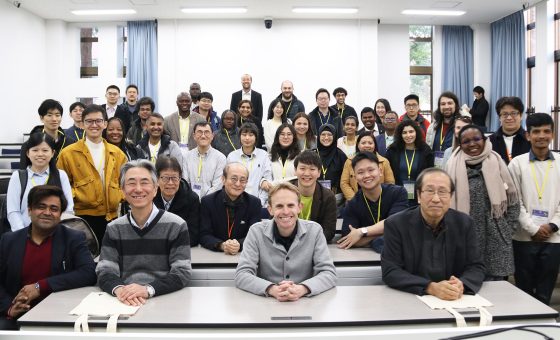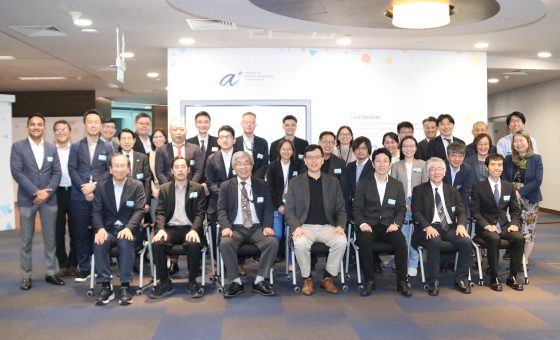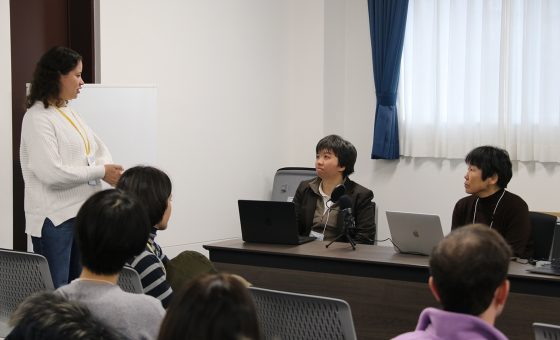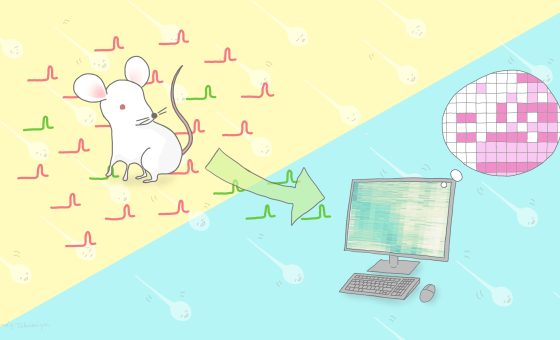Knowledge Capital Workshop Fes, Autumn 2016: “Let’s Think about It from Here” with NHK E-Tele “Think Like a Crow!”
On November 12, a workshop titled “Let’s Think about It from Here” was held, using programs from the NHK Educational Television series “Think Like a Crow.” Elementary school children (grades 3–6) from 22 families participated along with their parents: seven families (16 people) in the beginner course, eight families (18 people) in the intermediate course, and 7 families (15 people) in the advanced course.
Serving as facilitator for the workshop was Mr Yasuyuki Kashima (undergraduate student, Shiga University) for the beginner, intermediate and advanced course. In the first session of each course, participants watched a different episode of the “Think Like a Crow” program series.
Families in the beginner course, called “A Tray and a Balloon,” watched Episode 2 “Thinking Practice” of the “Think Like a Crow” series, and considered the question, “Why do a tray and a balloon drop at the same speed?” Those in the intermediate course, titled “A Drone and a Scale,” watched Episode 12 “Careful Observation” and were asked, “Why does the scale not change even when the drone hovers off of it?” The advanced course, “Sesame and Salt,” had participants watch Episode 17 “Careful Observation” and consider the question, “Why do the sesame seeds and salt blend well together in gomashio (sesame-salt) seasoning?” (Anyone can watch these movies on the Internet for free at NHK's program website )
Mr Hiroyuki Kobayashi (Program-Specific Research Associate, iCeMS Tsujimoto Lab) who studies material science, joined in the beginning, intermediate, and advanced courses. Mr. Kobayashi stated, “Today, you have considered some of the “mysterious phenomena” we often encounter in our daily lives but don’t usually think about. There are many “mysterious phenomena” in our everyday lives. Try to find these phenomena by yourself, consider the reasons for why they exist, and do some experiments to confirm your ideas. If one idea doesn’t work, try another idea. Talk with others and exchange your ideas. This process is what researchers do every day.”
The scientific process of investigating things and finding better answers is not specific only to scientists; it is something that you do in many aspects of your own daily life. Polish your investigative skills and try to find more “mysterious phenomena” in your everyday life!
Text and Photo: iCeMS Science Communication Group
